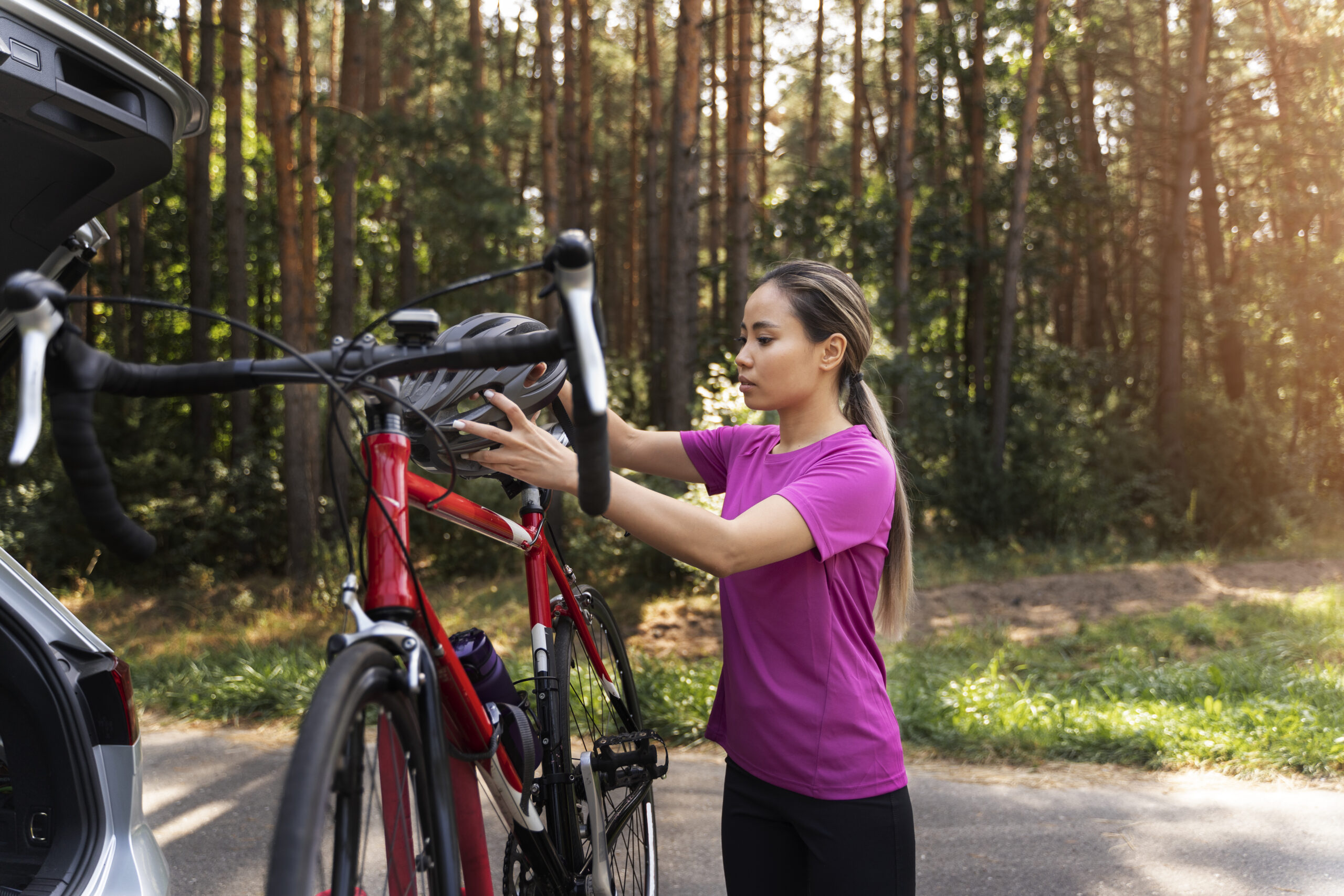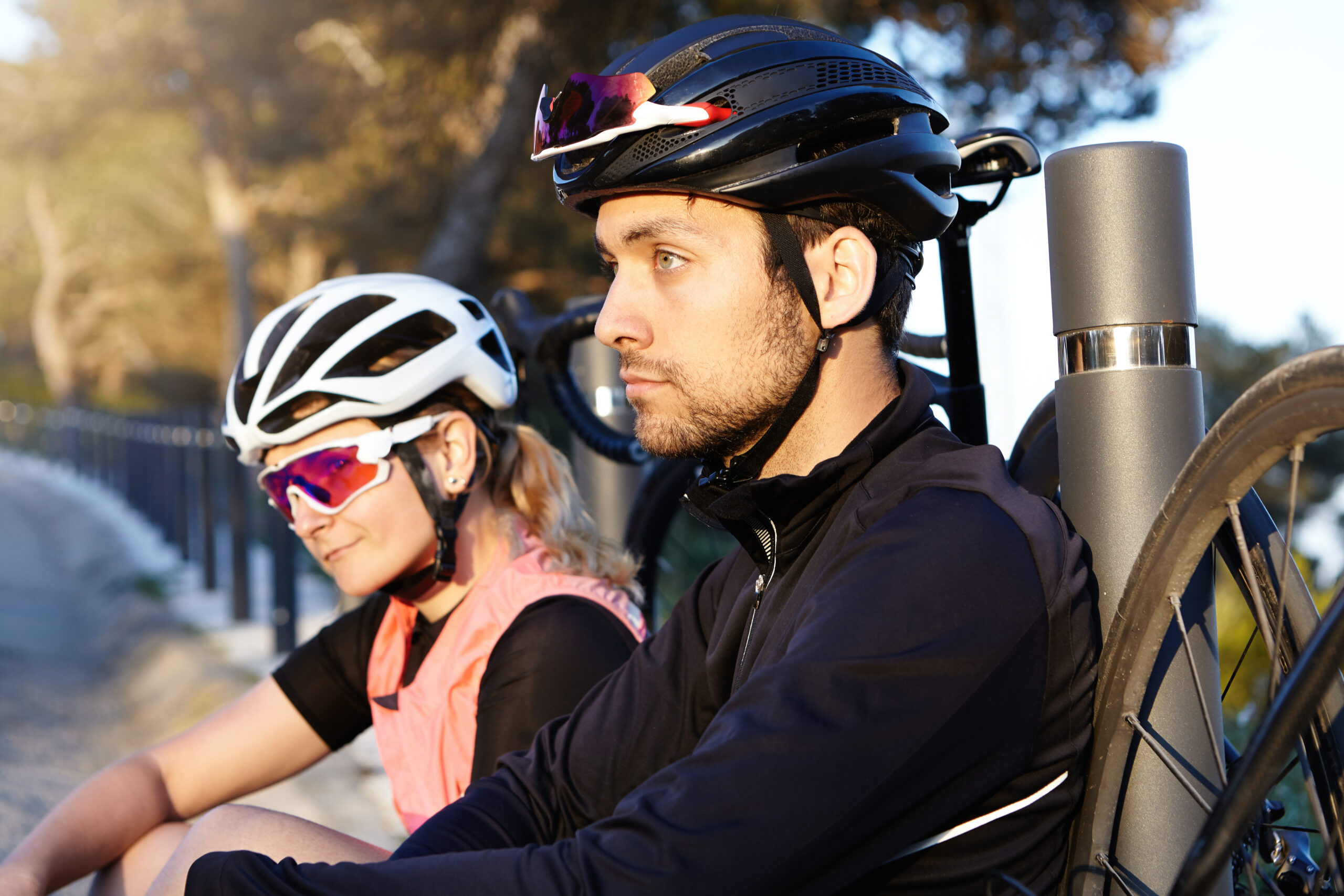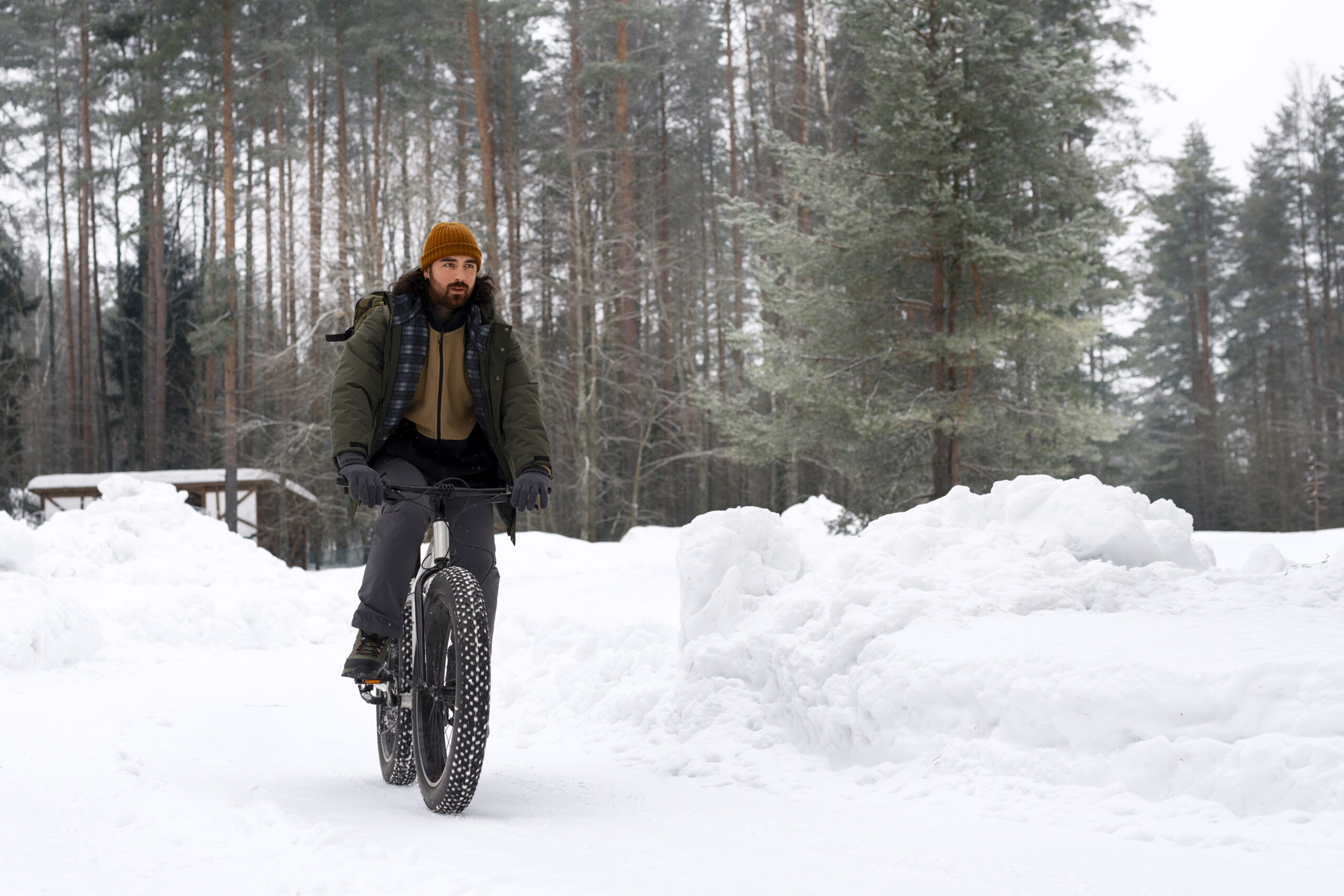When planning an outdoor biking adventure, finding the right bike rack for your car is essential to transport your bike safely and efficiently. With so many options on the market, selecting the best one depends on your vehicle, the type of bike you have, and your travel needs.
Types of Bike Racks for Cars
Several types of bike racks are available, each suited for different needs. Let’s explore the most popular options:
Roof-Mounted Bike Racks
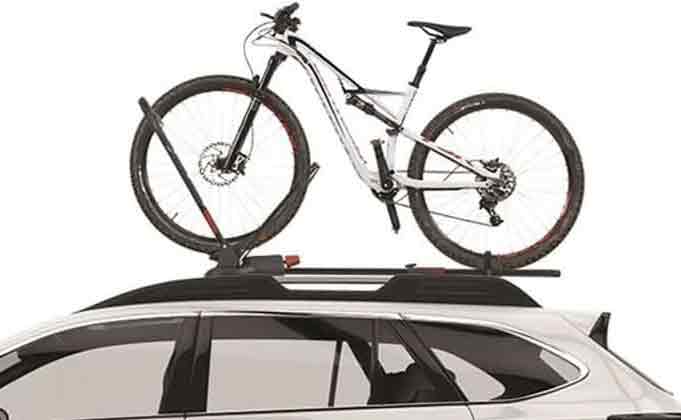
Roof-mounted racks attach directly to your car’s roof rails or crossbars. These are ideal for cars that already have factory-installed roof rails.
Pros
- Stable
- does not block rear access to the trunk.
Cons
- Increased wind resistance
- can be challenging to load heavier bikes
For more details on how to safely install roof-mounted racks and avoid potential hazards, refer to this comprehensive bike rack safety guide.
Hitch-Mounted Bike Racks
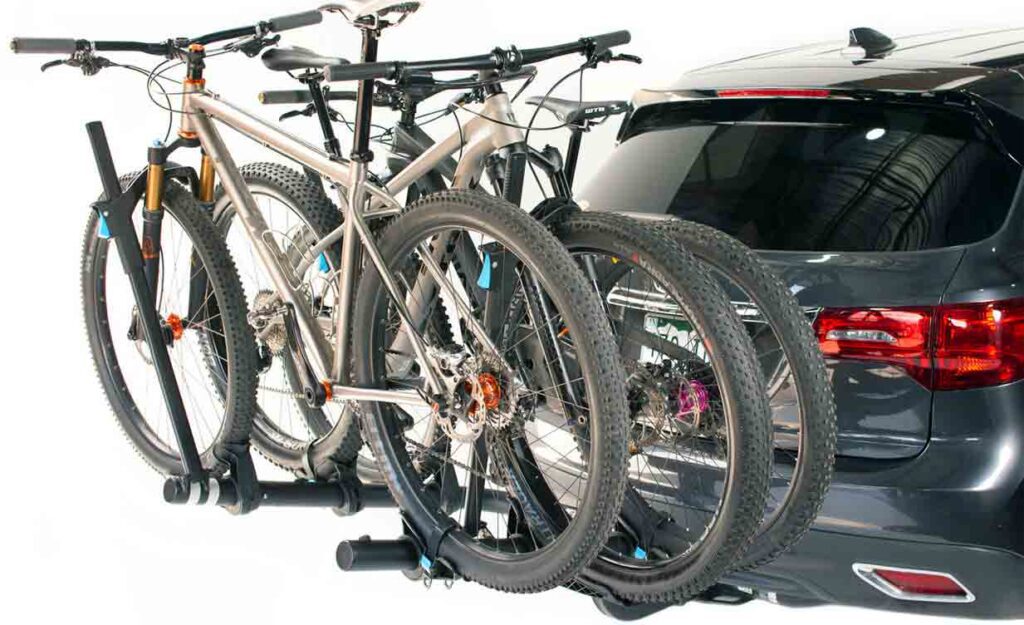
Hitch-mounted racks are perfect for vehicles with a hitch receiver. They come in platform and hanging styles:
Pros
- Easier loading and unloading
- ideal for heavy bikes like e-bikes.
Cons
- May block access to the trunk
- larger storage footprint.
Need more insight on bike security when using a hitch-mounted rack? Here’s a helpful resource on bike security.
Trunk-Mounted Bike Racks
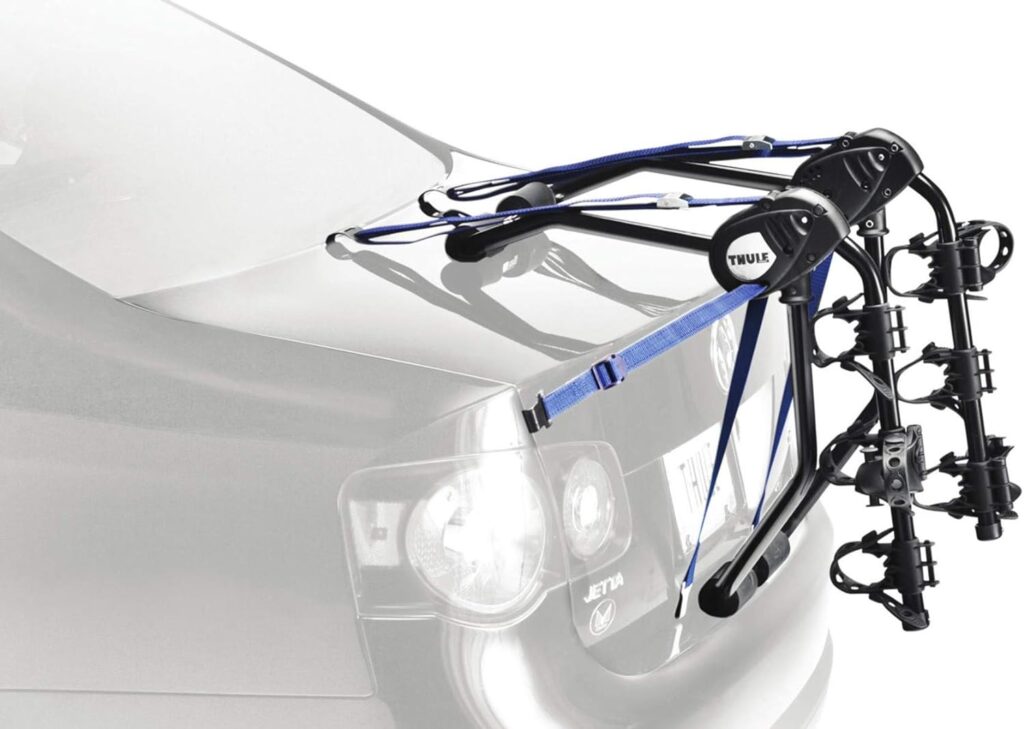
Trunk-mounted racks are versatile and affordable options, especially for sedans.
Pros
- Budget-friendly
- compatible with most vehicles.
Cons
- Limited weight capacity
- can obstruct rear visibility and trunk access.
Factors to Consider When Choosing a Bike Rack
Selecting the right bike rack for your car involves understanding your specific requirements. Consider these factors:
1. Number of Bikes
- If you frequently travel with multiple bikes, opt for a rack that can handle more than one. Hitch-mounted racks, like the Thule T2 Pro XTR, are excellent choices for transporting two bikes while keeping them secure.
2. Bike Type and Weight
- Heavier bikes, including e-bikes, require sturdy racks with higher weight capacities. Models like the Thule Easyfold XT2 are designed to carry heavy loads and offer ease of use with optional ramps for loading.
3. Car Compatibility
- Ensure the rack is compatible with your vehicle’s structure. For example, SUVs with roof rails are ideal for roof-mounted bike racks, while smaller cars like sedans are better suited for trunk-mounted racks.
4. Installation Ease
- Some racks, such as the SeaSucker Talon, are designed for tool-free installation, making them convenient for those who prefer a hassle-free setup.
5. Security Features
- Opt for bike racks with built-in locking systems for added security. Brands like Yakima and Thule integrate locking mechanisms to prevent bike theft.
Top Bike Rack Recommendations for 2024
Based on usability, convenience, and security, here are the top bike racks to consider for 2024:
1. Thule T2 Pro XTR (Hitch-Mounted)
- Best for Versatility: Accommodates various bike sizes, including e-bikes.
- Features: Easy to install, tool-free adjustments, and ample space between bikes.
2. SeaSucker Talon (Roof-Mounted)
- Best for Simplicity: Uses vacuum suction to attach to your car’s roof, making it easy to install and remove.
3. Saris Freedom 2-Bike Rack (Hitch-Mounted)
- Best for Budget-Conscious Buyers: Economical without sacrificing quality. It’s suitable for carrying two bikes and fits most car hitches.
4. Thule Easyfold XT2 (Hitch-Mounted)
- Best for E-bikes: Designed specifically for carrying heavy bikes with an optional ramp for easier loading.
Installation and Maintenance Tips
To ensure your bike rack remains in top condition, follow these installation and maintenance guidelines:
Installation Tips
- Always read the manufacturer’s instructions carefully. Whether installing a hitch-mounted, roof-mounted, or trunk-mounted rack, make sure all parts are tightly secured.
- Avoid over-tightening straps, especially on trunk-mounted racks, as this can damage your vehicle’s paint.
Maintenance Tips
- Regularly clean your rack, particularly after exposure to dirt, rain, or snow.
- Store the rack indoors when not in use to prevent rust or degradation.
FAQs About Bike Racks
1. Can I use a bike rack on any car?
Most bike racks are designed to fit specific vehicle types. Always ensure that the rack you choose is compatible with your car’s model and structure.
2. Are bike racks bad for your car?
If installed correctly, bike racks won’t damage your vehicle. However, trunk-mounted racks can scratch the paint if the straps are not aligned properly.
3. Do bike racks affect gas mileage?
Roof-mounted racks increase wind resistance, which may slightly lower fuel efficiency. Hitch-mounted racks have less impact on gas mileage.
4. How do I prevent my bike rack from being stolen?
Look for racks with integrated locks and consider using additional locks to secure both your bikes and the rack.
Choosing the right bike rack for your car comes down to understanding your vehicle’s compatibility and your specific biking needs. Whether you need a rack for an e-bike, a family road trip, or just a daily commute, options like the Thule T2 Pro XTR or Saris Freedom 2-Bike Rack will provide you with the security and convenience you need. Make sure to regularly maintain your rack to ensure longevity and reliability on your biking adventures!
- Locking Bike Hitch Rack - 17/03/2025
- Bicycle Protective Gear for Adults - 17/03/2025
- How to Find Bike Trails - 16/03/2025


